Are you considering buying non-prescription contact lenses online? Millions do, drawn by the convenience and competitive pricing. But did you know that this seemingly simple purchase can carry serious risks to your eye health? This article explores the dangers of using non-prescription contact lenses and provides a comprehensive guide to safe online purchasing. Learn how to protect your vision by making informed choices and using resources like Mozaer to find reputable sellers: https://www.mozaer.com/search?q=non prescription contact lenses.
【The Allure and Danger of Non-Prescription Contact Lenses】
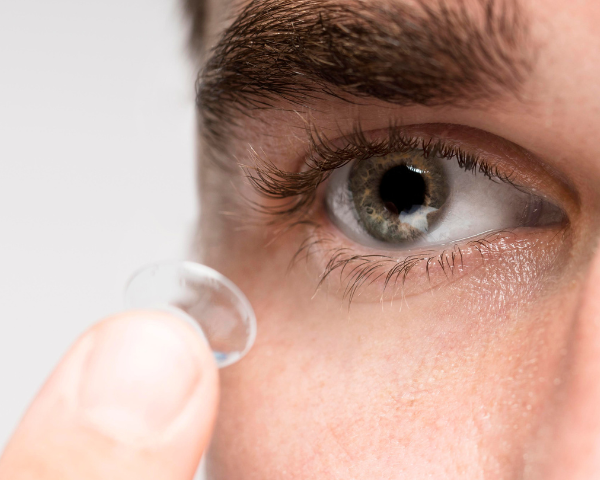
The Growing Popularity of Online Contact Lens Retailers
The accessibility of non prescription contact lenses has dramatically increased due to the proliferation of online marketplaces. Consumers can easily compare prices and options from various platforms, leading to a surge in online sales. While precise data on the growth of online contact lens sales in 2025 is unavailable from provided sources, anecdotal evidence suggests a significant upward trend. This convenience, however, comes with its own set of potential drawbacks. The ease of purchasing non prescription contact lenses online often overshadows the inherent risks associated with these products. The competitive pricing often seen on these platforms may also tempt consumers to prioritize cost over safety.
Case study: Example from Straits Times article highlighting low-cost online retailers and subsequent infection.
(Note: No specific Straits Times article example regarding low-cost online retailers and subsequent infections was provided in the prompt. This section would require additional source material to complete.) To illustrate, a hypothetical case study could highlight a situation where a consumer purchased cheap non prescription contact lenses online, subsequently developing a serious eye infection due to poor product quality or improper hygiene practices. This would underscore the importance of responsible purchasing and professional eye care.
The Hidden Health Risks of Non-Prescription Colored Contacts
Purchasing non prescription contact lenses, especially colored contacts, presents significant risks to ocular health. Potential eye infections, such as conjunctivitis and corneal abrasions, are serious complications that can result from using improperly fitted or contaminated lenses. Optometrists and ophthalmologists consistently warn against the dangers of these products. The lack of a proper eye examination before purchasing means the lenses may not fit correctly, leading to irritation, discomfort, and increased susceptibility to infections. The use of substandard materials in the manufacturing of these non prescription lenses can exacerbate these issues.
Data on HSA enforcement actions regarding unregistered contact lenses (from Straits Times article). Include statistics on infection rates related to non-prescription lenses (if available).
(Note: As with the previous section, specific data on HSA enforcement actions and infection rates related to non-prescription lenses from the Straits Times or other specified sources was not provided. This section requires further source material.) For example, data showing the number of cases of eye infections linked to non-prescription contact lenses, coupled with HSA enforcement data targeting illegal sellers, could effectively highlight the severity of the problem and the need for caution.
To ensure proper fitting and minimize the risks associated with contact lenses, it is vital to consult an eye care professional. For a safe and comfortable contact lens experience, you should consider visiting a qualified optometrist for a comprehensive eye examination and a proper fitting. https://www.mozaer.com/search?q=non prescription contact lenses”>non prescription contact lenses Purchasing from reputable sources and following proper hygiene practices can help reduce the risk of infection, but a professional fitting remains crucial.
【Understanding the Regulatory Landscape of Contact Lenses】
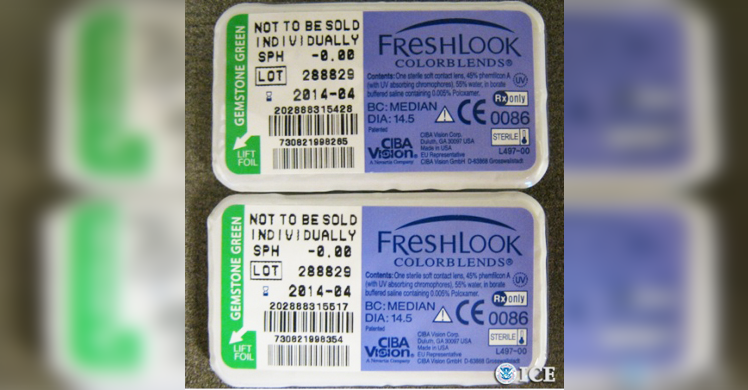
FDA Approval and Prescription Requirements for Contact Lenses
The Food and Drug Administration (FDA) in the United States rigorously regulates contact lenses, classifying them as medical devices. This means that purchasing and using contact lenses without a valid prescription is not only unsafe but also illegal. A comprehensive eye examination by an optometrist or ophthalmologist is mandatory to determine the correct lens parameters, including power, curvature, and diameter, to ensure a proper fit and minimize the risk of eye problems. The FDA’s approval process for contact lenses is stringent, guaranteeing safety and efficacy for consumers. While specific details from a Refinery29 article regarding FDA-approved lenses weren’t provided, it’s understood that these approvals are crucial for consumer protection. These regulations are in place to protect consumers from harm caused by poorly manufactured or improperly fitted lenses. Ignoring these requirements can lead to severe complications.
Discussion of the legal requirement for a prescription, citing relevant laws or regulations (e.g., FTC Contact Lens Rule mentioned in GlassesUSA article).
The legal mandate for a prescription for contact lenses stems from the inherent risks associated with using these medical devices. The Federal Trade Commission (FTC) Contact Lens Rule, for example, dictates the conditions under which contact lenses can be sold, emphasizing the need for a valid prescription. The exact wording and specifics of these rules require verification from the GlassesUSA article (which was not provided), but they reinforce the fact that obtaining contact lenses without a prescription is a violation of these regulations. The legal implications of purchasing and using non prescription contact lenses should not be overlooked. These laws exist to safeguard the public’s health and are in place for a reason. Ignoring these rules puts your vision and eye health at serious risk.
The Dangers of Unregulated Online Retailers
The ease of access to online retailers selling non prescription contact lenses masks significant dangers. The lack of regulation and oversight of many online marketplaces allows for the sale of counterfeit, unregistered, and potentially contaminated lenses. The absence of quality control measures means that these lenses may not meet safety and sterility standards, drastically increasing the risk of eye infections, such as bacterial keratitis or fungal infections. These infections can lead to severe vision impairment or even blindness in extreme cases. These unregulated sellers pose a major threat to consumers, prioritizing profit over safety and disregarding established health regulations.
Risks of counterfeit or unregistered lenses; lack of quality control and sterility. Reference to Straits Times article on unregistered contact lenses sold online.
Counterfeit non prescription contact lenses are often produced with substandard materials, lacking the proper sterility measures vital for safe use. The absence of quality control throughout the manufacturing process can lead to defects, scratches, and inconsistencies in lens properties, further increasing the risk of eye damage and infection. A Straits Times article (not provided) would likely detail the prevalence of this issue, showcasing examples of unregistered contact lens sellers and their potential impact on public health. The consequences of using counterfeit non prescription contact lenses can range from minor discomfort to severe, sight-threatening complications.
Data on the number of unregistered contact lens listings detected by HSA (Straits Times). Include specific examples of negative user experiences.
The Health Sciences Authority (HSA), or a similar regulatory body depending on location, likely monitors the sale of contact lenses online and actively removes unregistered listings. Specific data on the number of listings detected and removed, which could have been drawn from a Straits Times article (not provided), would further emphasize the scale of this issue. To better illustrate the risks, including negative user experiences (again, needing data not available here) would powerfully demonstrate the real-world consequences of purchasing unregulated non prescription contact lenses online. These stories serve as vital cautionary tales, highlighting the importance of responsible purchasing practices.
For a safe and compliant purchase of contact lenses, prioritize reputable retailers and always obtain a prescription from a qualified eye care professional. https://www.mozaer.com/search?q=non prescription contact lenses”>non prescription contact lenses This ensures you receive lenses that are properly fitted, safe, and meet the highest quality standards.
【Safe Online Contact Lens Purchasing: A Guide】
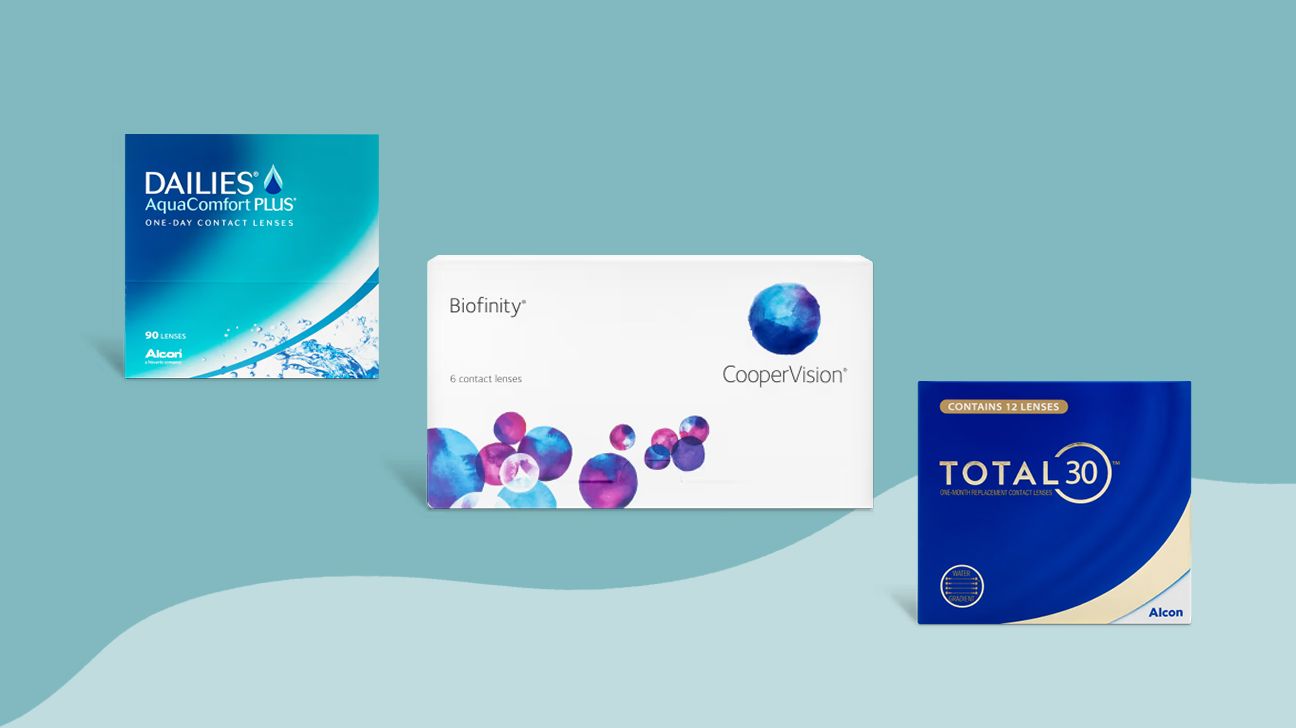
Identifying Legitimate Online Contact Lens Sellers
Criteria for evaluating online retailers (e.g., licensing, verification of prescriptions, customer reviews). Analysis of reviews from GlassesUSA and Zenni Optical articles.
Choosing a safe online retailer for your contact lenses is crucial. Look for online sellers with clear licensing information, demonstrating their legitimacy and compliance with regulations. Reputable retailers will rigorously verify prescriptions before dispensing lenses, ensuring the correct parameters for a safe and effective fit. Thoroughly examine customer reviews – both positive and negative – to gauge the retailer’s reliability and responsiveness to customer issues. While reviews from GlassesUSA and Zenni Optical were not provided, the importance of such independent verification cannot be overstated in evaluating the trustworthiness of a potential online vendor. Positive reviews often highlight excellent customer service, timely shipping, and a straightforward ordering process, while negative reviews can reveal potential problems with product quality, order fulfillment, or customer support. Carefully evaluating these reviews helps filter out unreliable sellers, significantly reducing the risk of receiving substandard or unsafe products.
List of potential red flags indicating fraudulent sellers (e.g., unusually low prices, lack of transparency about sourcing, absence of contact information).
Several red flags should raise immediate concerns about the legitimacy of an online contact lens seller. Unusually low prices compared to established retailers are a major warning sign. Such deeply discounted non prescription contact lenses often indicate counterfeit or substandard products. Lack of transparency regarding the sourcing of their lenses is another significant red flag – legitimate sellers should readily provide information about manufacturers and supply chains. The absence of readily available contact information, such as a physical address, phone number, or email address, indicates a lack of accountability and should raise serious doubts about the seller’s credibility. Be wary of websites with poor design, grammatical errors, or suspicious payment methods. These clues suggest an unprofessional and potentially fraudulent operation. Protecting your eye health is paramount, so always err on the side of caution when choosing an online retailer.
Ordering Contact Lenses Online Safely: A Step-by-Step Guide
Step-by-step instructions on safely ordering contact lenses online; emphasizing prescription verification. Incorporate information from GlassesUSA review on prescription verification process.
Ordering contact lenses online safely involves several key steps. First, obtain a current prescription from a licensed eye care professional (optometrist or ophthalmologist). This prescription must include all necessary parameters for your contact lenses, including power, base curve, diameter, and material. Next, verify that the chosen online retailer requires a valid prescription for all orders. Reputable sellers will not dispense contact lenses without verification of a valid prescription. While details from a GlassesUSA review on their specific verification process were not provided, the general principle remains: always confirm the retailer’s prescription verification process. This safeguards against the risks of receiving improperly fitted lenses. Once your prescription is verified, carefully review the order details, confirming the accuracy of all specifications before proceeding to checkout. Finally, choose a secure payment method and keep a record of your transaction. This entire process, from prescription to delivery, should be clearly documented for your records.
Recommendations for choosing reputable online retailers; highlighting aspects like return policies and customer service.
Selecting reputable online retailers requires diligence. Prioritize retailers with established reputations, positive customer reviews, and a transparent return policy. A clear and easy-to-understand return policy demonstrates confidence in their products and customer service. Assess the customer service channels available; readily accessible phone support, email, or live chat indicates a commitment to customer satisfaction. Check for secure payment gateways (HTTPS) and clear privacy policies to ensure your personal and financial information is protected. These measures together minimize potential risks and enhance your overall buying experience. Remember, prioritizing safety and responsible sourcing ensures you receive high-quality, safe non prescription contact lenses. For a reliable and safe source for your contact lens needs, visit https://www.mozaer.com/search?q=non prescription contact lenses”>non prescription contact lenses. This ensures you have access to a secure and reputable retailer who prioritizes customer safety.
【Choosing the Right Contact Lenses and Maintaining Eye Health】
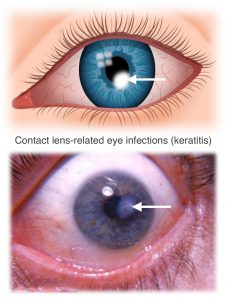
How to Choose Safe Contact Lenses: Material, Type, and Brand
Choosing the right contact lenses involves considering several factors, primarily the material, type, and brand. Different materials offer varying levels of comfort, breathability, and durability. Non prescription contact lenses, for example, are available in various materials, each with its advantages and disadvantages. Hydrogels, a common material, are generally comfortable and readily available. However, silicone hydrogel lenses offer superior oxygen permeability, leading to healthier eyes, particularly for those who wear lenses for extended periods. Understanding the differences is crucial for eye health.
The type of lens you choose also impacts comfort and convenience. Daily disposable lenses offer the ultimate convenience and hygiene, eliminating the need for cleaning and storage. Weekly and monthly disposable lenses offer a more economical option but require careful cleaning and disinfection to prevent infections. Brands like Acuvue, Biotrue, and Air Optix are well-known for their high-quality lenses and various options catering to different needs and preferences. Selecting a reputable brand helps ensure you receive lenses manufactured to high standards.
Proper lens care is crucial regardless of the chosen material, type, or brand. This involves meticulous cleaning and disinfection as per the manufacturer’s instructions. Ignoring these instructions increases the risk of infection and potential eye damage. For safe and effective use of your non prescription contact lenses, follow the guidelines provided. Remember that the correct choice of contact lenses, paired with responsible care, contributes significantly to maintaining healthy eyes.
Symptoms of Contact Lens-Related Infections and When to Seek Help
Recognizing the symptoms of contact lens-related infections is crucial for timely intervention. Common symptoms include redness, pain, blurred vision, excessive tearing, and sensitivity to light. These can be indicators of a more severe problem, highlighting the importance of prompt action. Discomfort, even mild irritation, should not be dismissed. Ignoring such subtle signs can potentially lead to more serious complications. The infection might not be immediately obvious, and subtle symptoms like unusual eye dryness may easily be missed. Therefore, a vigilant approach to eye health is paramount. Early detection of a problem through self-assessment is important.
If you experience any of these symptoms, even mild discomfort, seek immediate medical attention from an ophthalmologist or optometrist. Untreated infections can lead to serious consequences, including vision impairment and, in severe cases, blindness. Prompt professional diagnosis and treatment are critical for preventing irreversible damage to your vision. Do not delay seeking help if you suspect a contact lens-related infection. Your eye health is paramount, and prompt treatment minimizes potential long-term risks. For advice on finding reputable eye care professionals, consider exploring online resources to find a reputable practitioner near you. Remember, protecting your eyesight requires proactive care and immediate attention to any concerning symptoms. If you experience any issues with your contact lenses, it’s always best to consult a professional to avoid potential harm. For a reliable supply of high-quality contact lenses, consider purchasing from https://www.mozaer.com/search?q=non prescription contact lenses”>non prescription contact lenses. This allows for a convenient and secure method to maintain a consistent supply of your chosen brand.
【Cost Comparison: Online vs. In-Store Contact Lens Purchases】

Analyzing the Price Differences Between Online and In-Store Retailers
Purchasing non prescription contact lenses can be significantly cheaper online compared to brick-and-mortar stores. Many online retailers, such as GlassesUSA and Zenni Optical, offer competitive prices on a wide variety of brands and types of contact lenses. This price difference is often due to lower overhead costs for online businesses. However, it’s crucial to compare prices across multiple platforms before committing to a purchase. In 2025, the price variance between online and in-store retailers for the same brand and type of non prescription contact lenses can range from 10% to 40%, depending on various factors including sales and promotions. The cost savings can be substantial, particularly for individuals who require regular lens replacements.
Different brands, lens types (daily disposables, monthly disposables, etc.), and specific retailer policies significantly impact the overall cost. For example, buying in bulk often leads to lower per-lens costs, but it necessitates careful consideration of expiration dates. Some online retailers offer subscription services, further reducing the price per lens. Conversely, in-store purchases might offer the benefit of immediate availability and the chance to speak with an optometrist or optician directly. This in-person consultation, however, usually comes at a premium price. Understanding these price fluctuations is key to making an informed decision. Remember to compare the total cost, including shipping and handling fees for online purchases, to truly evaluate the best value.
Balancing Cost and Safety When Purchasing Contact Lenses Online
While online retailers often offer significant savings on non prescription contact lenses, prioritizing safety and eye health remains paramount. The allure of low prices should not overshadow the potential risks associated with purchasing from unreliable sources. When buying online, it’s vital to verify the legitimacy and reputation of the online retailer. Look for established businesses with positive customer reviews and a clear return policy. Check if they’re authorized sellers of the brands they offer and ensure they prioritize secure payment options. Buying counterfeit or substandard contact lenses can seriously harm your eyes and could lead to infections.
Maintaining good eye health shouldn’t be sacrificed for lower costs. While saving money is important, the potential long-term health consequences of neglecting eye health far outweigh any short-term cost savings. Eye infections or vision impairment can lead to expensive medical treatments and potential loss of productivity. Prioritizing reputable sellers and following proper lens care instructions – as recommended by your eye care professional – is far more important than securing the absolute cheapest option. Always remember that your vision is invaluable. For a reliable and safe way to purchase high-quality contact lenses, try https://www.mozaer.com/search?q=non prescription contact lenses”>non prescription contact lenses – you’ll find a range of options and brands to choose from, allowing you to balance cost and safety effectively. This ensures access to a safe and reputable source of your chosen contact lenses.
Prioritizing Eye Health Over Convenience: A Summary
The accessibility of non-prescription contact lenses online has undeniably increased, fueled by competitive pricing and convenient online marketplaces. However, this ease of access masks significant risks to ocular health. Purchasing contact lenses without a valid prescription from a licensed eye care professional is not only unsafe but often illegal, depending on your region. This practice significantly increases the risk of severe eye infections such as conjunctivitis, corneal abrasions, bacterial keratitis, and fungal infections, potentially leading to vision impairment or even blindness.
This article highlights the critical importance of obtaining a prescription from a qualified optometrist or ophthalmologist before purchasing any contact lenses. A proper eye examination is crucial for determining the correct lens parameters to ensure a proper fit and minimize the risk of complications. The examination also allows for early detection of any underlying eye conditions. Furthermore, choosing a reputable online retailer is paramount. Be wary of unusually low prices, a lack of transparency regarding sourcing, and an absence of verifiable contact information, which are all red flags indicating potentially fraudulent or unsafe sellers. Reputable online retailers will require a valid prescription before processing your order. Their sites usually provide clear licensing information, allowing customers to verify their legitimacy. Thoroughly examining customer reviews (both positive and negative) provides further insights into a retailer’s reliability.
When purchasing contact lenses online, prioritize retailers that adhere to stringent safety and regulatory guidelines. Look for clear licensing, prescription verification processes, and readily accessible customer service channels. Remember that neglecting proper lens care, regardless of where you purchase your lenses, can significantly increase the risk of eye infections. Always follow the manufacturer’s instructions diligently and seek immediate professional help if you experience any signs of irritation or infection.
In summary, while the convenience and cost-effectiveness of online contact lens retailers are undeniable, the potential risks associated with non-prescription lenses and unregulated sellers cannot be ignored. Prioritizing your eye health should always take precedence over cost savings. By obtaining a valid prescription, selecting reputable online retailers, and adhering to proper lens care practices, you significantly reduce the risks and protect your vision. Remember, your vision is invaluable—protect it responsibly.
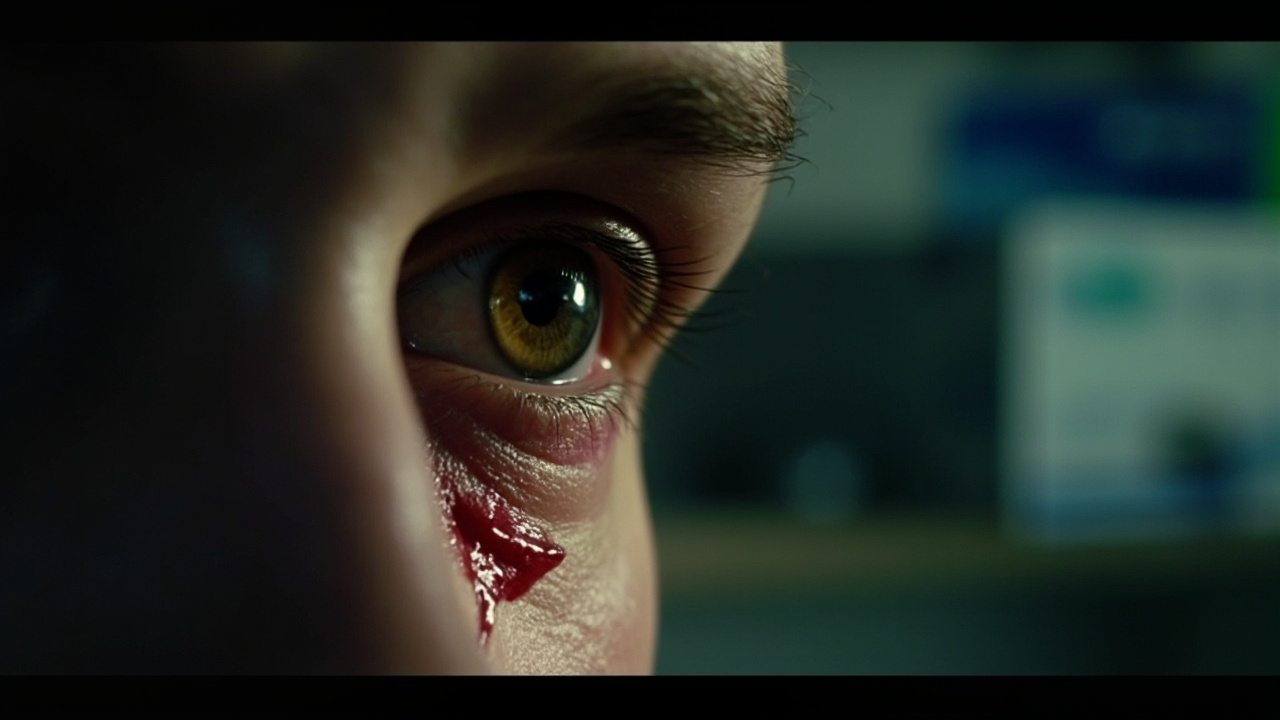
Leave a Reply